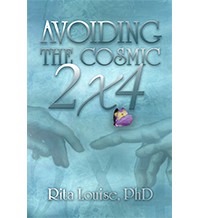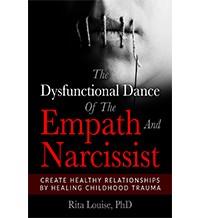Unhealthy Dissociation Is Tied To The Freeze Response
Dissociation, for many people, is a natural reaction to stress or trauma and is most often tied to the freeze response. It is one way the mind works by disconnecting us from unbearable feelings and emotions that may overwhelm us during traumatic events. Dissociation can help us better deal with what might otherwise be too emotionally devastating to bear. It is as if our consciousness shuts down in order to block the intensity of the trauma.
We all dissociate at one time or another. Many times, people are not even aware it is happening. What does it feel like? We are dissociated when we lose touch with our immediate surroundings. When we are daydreaming, we are dissociating. When we drive our cars to a location and we do not remember how we got there, we are dissociating. When we get lost in a movie or a book, we are dissociating.
We are also dissociating when we ‘space out‘ while a friend is talking our ear off or when a parent, significant other or our boss is yelling at us and we let it go in one ear and out the other. In relationships, we often hear of situation where one partner will ‘tune out’ the other partner’s complaints. Dissociation.
Dissociation And Trauma
When dissociation is connected to traumatic memories it is considered an avoidance coping strategy. Children are more prone to dissociating. They will use this coping skill during frightening experiences. Unable to escape from emotionally dangerous situations they instead disconnect from what is going on around them, distancing themselves from what is too scary to take in. They no longer feel the enormity of what is happening which might be intense fear or helpless. Dissociation allows them to mentally block off their thoughts, feelings and ultimately their memories of the frightening situation.
Some researchers suggest that the attachments that form between a child and their caregiver play a significant role in the development of dissociative symptoms. Our primary caregiver is the person who provides food, shelter and protection. But what if your primary caregiver is your biggest threat? The child ends up seeing their caregiver in a duel way as a source of survival and as the biggest danger in their lives. This places them in a dilemma. The child, however, has no choice but to maintain a relationship with the offender. Their very life depends on it.
It is easier for the child to go on with daily life if they dissociate from the negative situation. Dissociation allows them to maintain family ties while reducing their awareness of past traumatic experiences. It is easier to just put it out of their minds. This learned system of self-defense become normal to a child who has had to acclimate to a dangerous situation in which they cannot escape. Many times, this learned behavior becomes the go-to coping mechanism to stressful life events as an adult. It becomes a way of life when dealing with uncomfortable circumstance.
The Dissociative Experience
When someone is dissociating, they may experience their body go limp or rigid. Time may seem to slow down. They may have mastered the art of changing their internal channel whenever inner experiences become uncomfortable. Some may experience complete separation where they feel like they are looking down at themselves from outside of their own body. From this perch of safety, they can observe events unfolding around them as if they were watching a movie or as if they were in a dream.
Memory Loss Due To Severe Trauma And Dissociation
Some individuals, after dissociating cannot remember what happened including the circumstance or their feelings about an event or may experience gaps in their memory. This does not mean that they did not experience the ill effects of the trauma. The trauma still had an impact on them. This unprocessed emotional energy gets trapped in the body and can grow each time the individual is retraumatized. Others may remember each incident with vivid clarity but view it from a detached, unemotional position.
Memory, Sexual Assault And Dissociation
Rape or assault victims often report little or no memory of the horrors they have endured. Their minds escape the feelings of fear and pain in order to preserve their sanity and protect them from further psychological harm. They might have nightmares or flashback of the overwhelming event. They might know it happened but struggle to recollect the details or may only be able to recall certain parts of it. Their memory might be so buried they might not remember the trauma at all.
When this occurs, the traumatized portion of memory has literally split off into a separate subconscious memory system. This includes the feelings, emotions and body sensations associated with it. A ‘fragment’ of ourselves is created and the unbearable experiences are stored in this area of our minds, like a separate computer file or directory. This allows for another part of us to survive and go on with day-to-day activates.
The mind can compartmentalize these traumatic memories so well that many are not aware of their fragmented parts. If the trauma was intense enough or went on for long enough, this coping response can become ‘hardwired’ into the psyche where the person will lose access to their innate being, their original, non-traumatized self. This form of dissociation may also open the door to an attached entity.
Healing Dissociation
Staying in the present moment, in the here and now, is the key concept that needs to be explored when looking to reduce periods of dissociation. People dissociate when they are triggered. Practices such as mindfulness, grounding, meditation, connecting with your inner child and journaling support healthy emotional regulation and help the individual resolve the traumatic conflict going on inside.
Need help with chronic dissociation?
Taking action is the key to making positive changes in your life. This includes your health. So don’t wait! Take your next step right now and contact Dr. Rita to schedule a private consultation.
Medical Intuitive Reading – Intuitive Counseling – Energy Healing
© Copyright Rita Louise, Inc. – soulhealer.com. All rights reserved.




